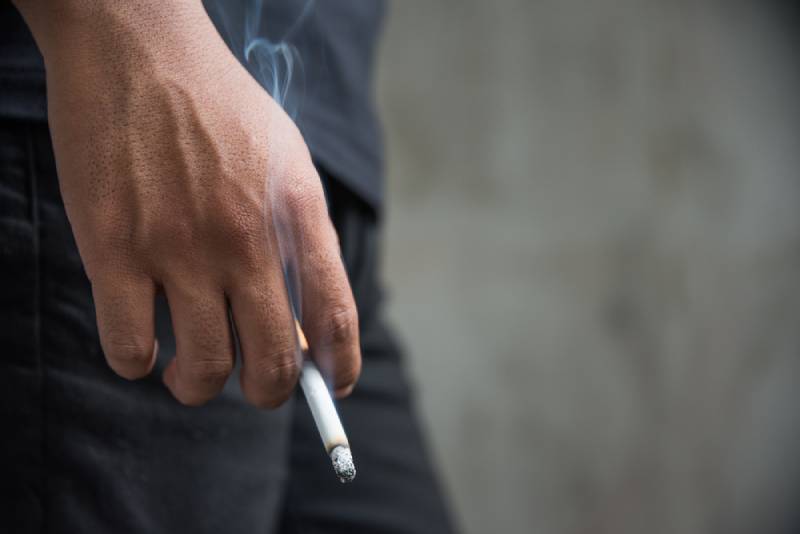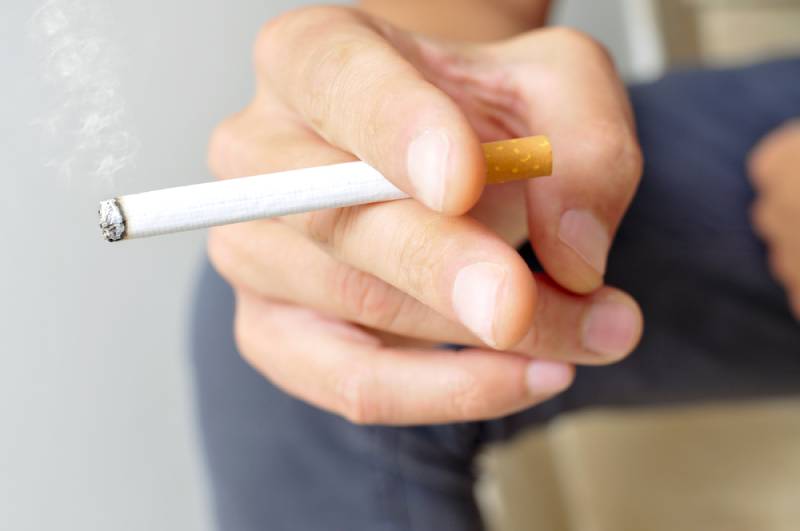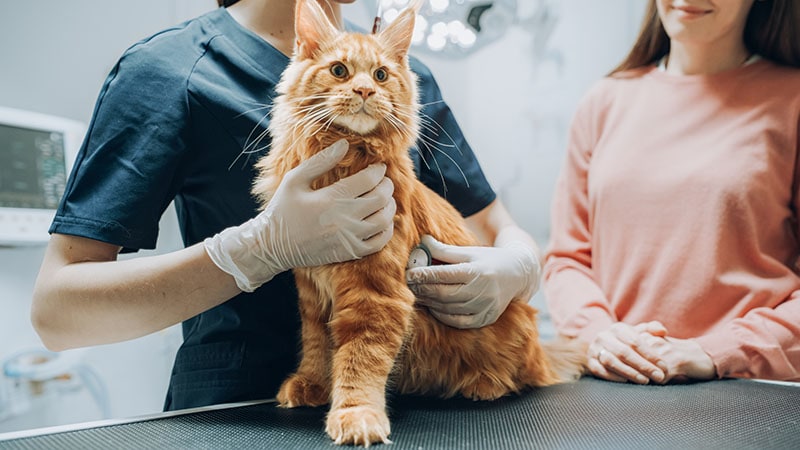How Does Smoking Affect Cats? Vet Approved Advice & FAQ
By Jordyn Alger
Updated on

As you surely are already aware, smoking is incredibly dangerous for humans. Even secondhand smoke can cause respiratory problems and cancer. But how can it affect our animals?
Since our cats breathe the same air we do, they can be just as affected by smoke. Smoke can cause serious health consequences for your cat. Keep reading below to learn more about what smoking around your cat can do to them.
How Smoking Can Impact Your Cat
Firsthand smoke (when a smoker directly inhales the smoke into their lungs) is not the only form of smoke that can harm your pet. Both secondhand smoke and thirdhand smoke can seriously harm your cat. Secondhand smoke is inhaled by someone who is not smoking, such as your cat. Thirdhand smoke is the residual smoke that lingers on furniture, clothes, skin, fur, and other surfaces.
Cigarettes contain more than 7,000 chemicals, and many of them are toxic. At least 69 of the chemicals cause cancer. When you smoke around your pet, you expose them to hazardous chemicals.

Adverse Health Effects That Smoke Causes
Smoking when you have a cat in the home exposes them to dangerous chemicals. How exactly does that impact their health?
Malignant Lymphoma
One study discovered that environmental tobacco smoke (such as secondhand and thirdhand smoke) significantly increased the chances of malignant lymphoma in cats. Compared to felines in smoke-free homes, the cats in smoking households were nearly 2.5 times more likely to develop the cancer. Once cats lived with that exposure for 4–5 years, that risk jumped to 3.2 times higher. Long-term, cats in smoky environments are at a higher risk of developing asthma and lung cancer as well.
Oral Cancer
This same study also found that there is likely a link between feline oral (mouth) cancers and thirdhand smoke. It is believed that when cats self-groom, they are licking the smoke toxins that have settled in their fur. Direct contact with these dangerous chemicals damages the tissues in their mouth and leads to oral cancer.
Smoke From Fires
In extreme cases of smoke inhalation, such as in the case of a house fire, much more significant damage can occur in a brief period. Cats that inhale large quantities of smoke may experience lung damage, inflammation of the trachea and bronchial area, and fluid accumulation in the lungs.
Likewise, they may suffer from excess carbon monoxide, which can decrease the amount of oxygen delivered to the body’s tissues. Since households with smokers are at a significant risk of a house fire, this puts any cats in the house in potential danger.

Signs of Lung Damage Due to Smoke Inhalation
If you suspect that your cat may be suffering from lung damage, these are the signs that you can watch for:
- Rapid breathing
- Struggling to breathe
- Swelling of the upper airway
- Soot inside of the nose or throat
- Discoloration of the mucous membranes (especially red, pale, or blue)
- Redness of the eyes
- Hoarse, raspy coughing
- Neck stretched out as a way to increase air flow
- Vomiting
- Confusion of loss of consciousness
- Shock
Upon noticing any of these signs, reach out to your vet immediately. While it is possible for your cat to recover, it requires prompt action.
Recovering from Lung Damage
When you bring your cat to the vet, it is possible that intubation or an operation may be required if your cat’s airways are damaged. Oxygen must be administered promptly to dilute any carbon monoxide in their system. From there, oxygen will continue to be given as needed, and fluid administration may be necessary.
Your vet must carefully monitor your cat, so expect your pet to stay at the hospital overnight. Your cat’s breathing, mucus membranes, heart rate, and blood cells will be closely watched. Depending on the severity of the case, other compilations may require attention, such as significant burns or organ injuries.
FAQs About How Smoking Affects Cats
Smoking can have a significant impact on your cat’s health. Whether you or someone in your house smokes with a cat around, it is important to be aware of the facts. Below are some frequently asked questions about the relationship between smoke and cats that you may find valuable.

Does Smoking Outside Prevent Health Issues in Cats?
Everyone wants to take care of their beloved pets, so many smokers probably already smoke outdoors or near an open window. Sadly, evidence suggests that smoking outside or with ventilation may decrease but does not eliminate the smoke you expose your cat to.
This is primarily due to thirdhand smoke, which, as you’ll remember, is the residue that lands on various surfaces. Even if you smoke outside, you still carry some of the dangerous chemicals inside via your hair, skin, clothes, and more. While smoking outside can reduce your cat’s risk of health issues, it certainly doesn’t prevent them.
Is Vaping a Good Alternative?
In recent years, vaping has become more popular. While there is currently no research to prove the effects that vaping has on our pets, it has been found that there are toxic, cancer-inducing chemicals inside e-cigarettes. Therefore, it stands to reason that many of the risks of cigarettes may also apply to e-cigarettes regarding our cats’ health.
Can Secondhand Smoke from Cannabis Affect Cats?
As cannabis becomes legal in more and more places across the United States, more people are trying it. However, if you have a cat in your home, think again.
Cats can become intoxicated by cannabis, whether from eating edibles, ingesting cannabis in any form, or inhaling secondhand smoke. Only a small amount of cannabis is needed to cause adverse effects, so it is best to keep it away from your pet.
Final Thoughts
Smoke is an incredibly dangerous substance for your cat, and it can lead to severe cancers, lung damage, and other health consequences. Whether you smoke indoors or outdoors, your cat will be exposed to the chemicals on your skin, clothes, or any other surface that has absorbed them. If you are looking for a reason to quit, your beloved cat’s health should be at the top of your list.
Featured Image Credit: Nopphon_1987, Shutterstock











